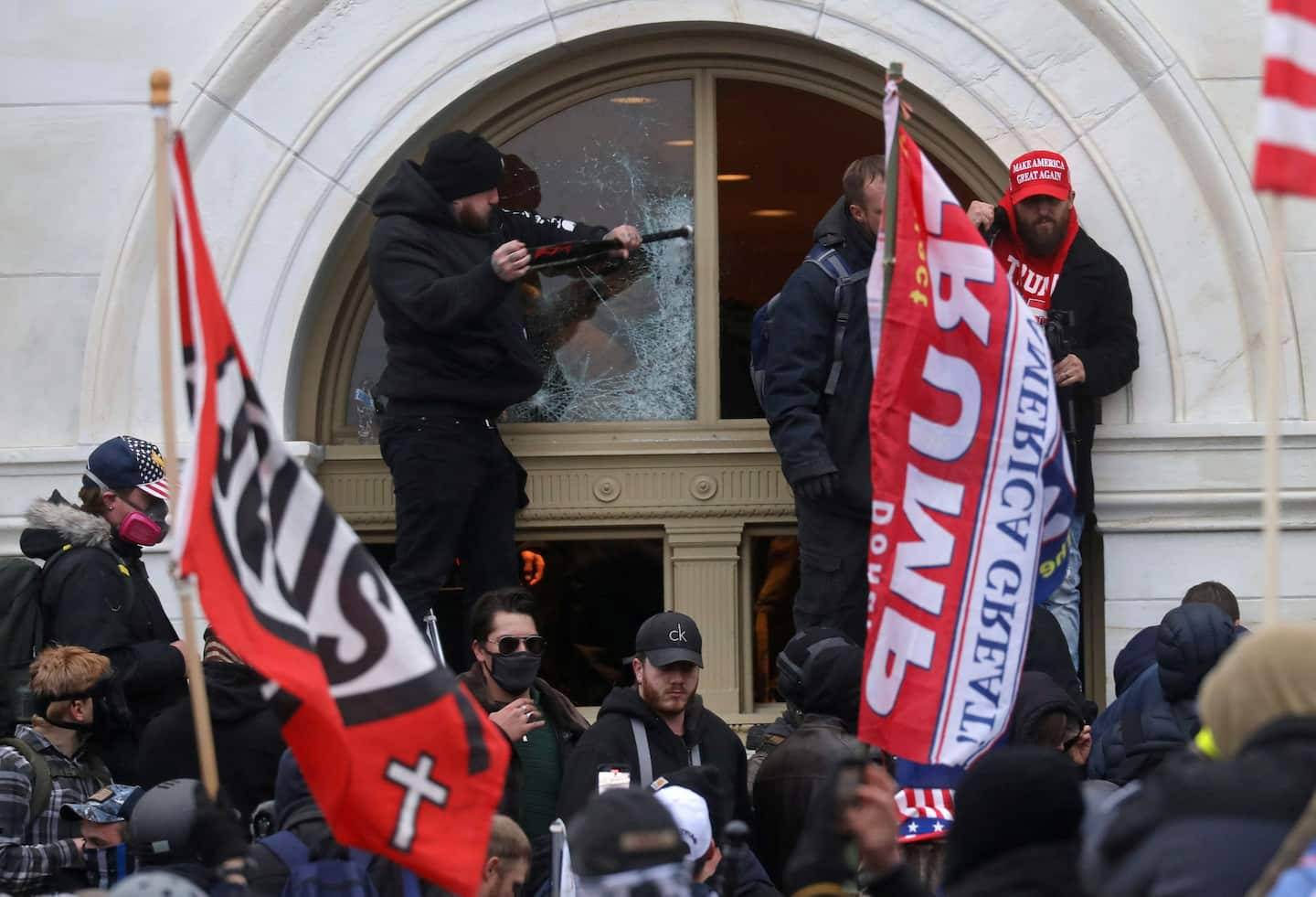How experts define the deadly mob attack at the U.S. Capitol

While it may seem like splitting insurrectionist hairs, these subtleties are important. It’s easier for democracies to counter violent authoritarianism when the precise nature of the threat is better known.
To that end, there’s an obscure term of art that seems particularly apt for describing the anti-democratic actions undertaken by Trump and his allies since the 2020 presidential election was decisively called for Joe Biden: an autogolpe, or “self-coup” in English.
A self-coup happens when a head of government, like a president or prime minister, attempts to seize extraordinary control over that government from within. That could mean suspending the Constitution, for instance, dissolving a legislative body or overturning the results of an otherwise free and fair election.
The term autogolpe originates in Latin America, where a number of infamous self-coups took place in the 20th century. In Peru in 1992, for instance, President Alberto Fujimori, backed by the country’s military, “closed the Congress, suspended the constitution, and purged the judiciary,” as described by political scientist Steven Levitsky.
What differentiates a self-coup from a coup is that the threat to governance comes from within the government itself. In the United States, for instance, Trump has tried to pressure lawmakers and election officials to toss out ballots for his opponent and name alternate slates of electors based on bogus assertions the election was “stolen.” Those false claims, echoed by the president’s supporters in Congress, culminated with an angry mob of armed Trump supporters ransacking the U.S. Capitol and disrupting the official tally of electoral votes.
“As someone who studies democracy and political instability, I think it is absolutely justified to ask whether or not what occurred yesterday in Washington, D.C., was an attempted autogolpe or ‘merely’ an insurrection,” said John Polga-Hecimovich, a political scientist at the U.S. Naval Academy. “I lean towards the former, although I imagine scholars will be debating this for a long time.”
Another expert using the term “self-coup” is Fiona Hill, a former Russia adviser to the Trump White House. Hill wrote this week in Politico that the post-election actions of Trump and his Republican allies qualify.
“The storming of the Capitol building on Jan. 6 was the culmination of a series of actions and events taken or instigated by Trump so he could retain the presidency that together amount to an attempt at a self-coup,” she writes.
“Autogolpes tend to occur in places where democracy is already troubled or eroding; they generally don’t occur in well-performing, advanced liberal democracies,” Polga-Hecimovich said. “What this suggests about the U.S. is obviously concerning.”
In the pre-Trump era, the characterization of the United States as an “advanced liberal democracy” would have been incontrovertible. But scholars have noted with alarm an erosion of democratic values in this country, a regression that has intensified under Trump. That erosion paved the way for the violence at the Capitol last week.
“There is a not-insignificant proportion of Americans who have a weak normative commitment to democracy — including a number of influential political elites,” Polga-Hecimovich said.
That creeping authoritarianism is happening almost exclusively within the Republican Party. Party-level data tracked by V-Dem shows that members of the GOP now routinely demonize opponents as illegitimate, and appear increasingly amenable to the use of violence to achieve political ends. Just hours after the Capitol assault, a majority of House Republicans voted against certifying Biden’s election based on a conspiratorial insistence — and despite the lack of evidence — that the results were fraudulent.
The history of self-coups in other countries suggests things will get worse before they get better. “Even if unsuccessful, self-coups leave lasting scars on their political systems,” Polga-Hecimovich said. “They tend to exacerbate many of the underlying problems, like lack of civic trust [and lack of] societal commitment to abide by the democratic ‘rules of the game.’ ”
As it stands, recent surveys have shown that roughly two-thirds of Republican voters reject the legitimacy of Biden’s election victory, a belief shared by more than a quarter of Republican political elites, including judges, congressional staff and political appointees.
The best-case scenario is that the deadly attack on the Capitol becomes “a wake-up call to political elites and party leaders in the U.S. that their words — and actions — have consequences and that they must change their behavior,” Polga-Hecimovich said.
“At least I hope so,” he said.






